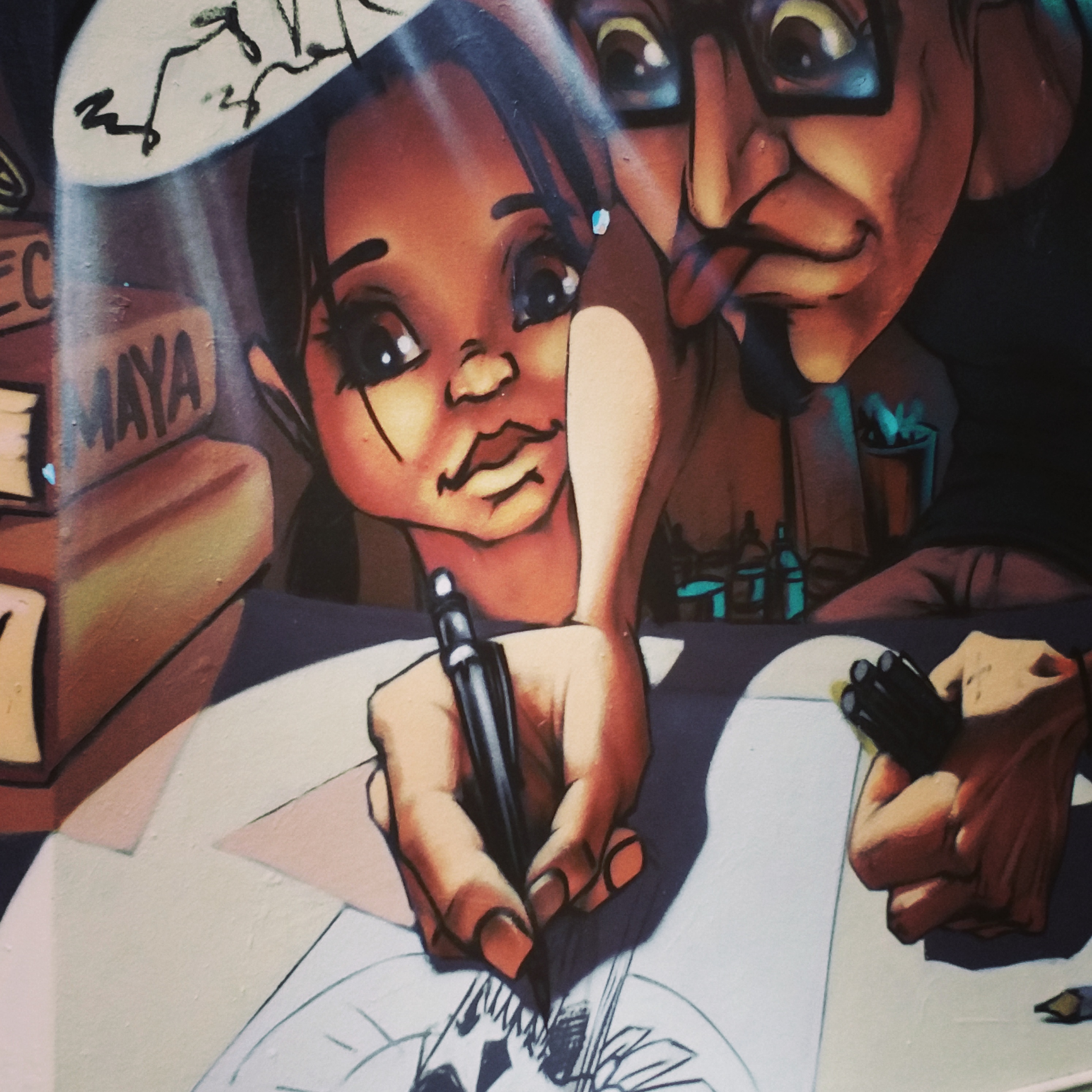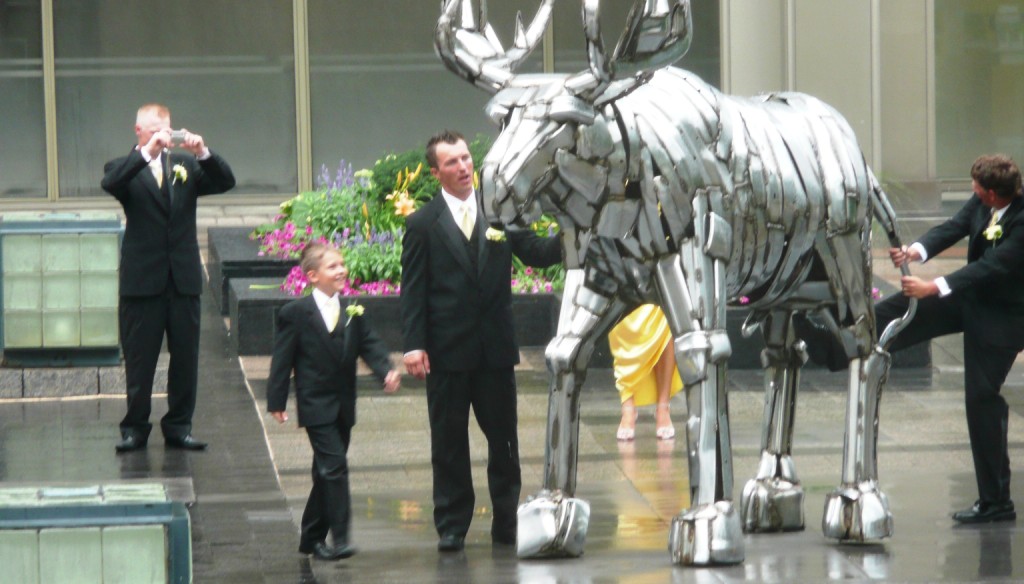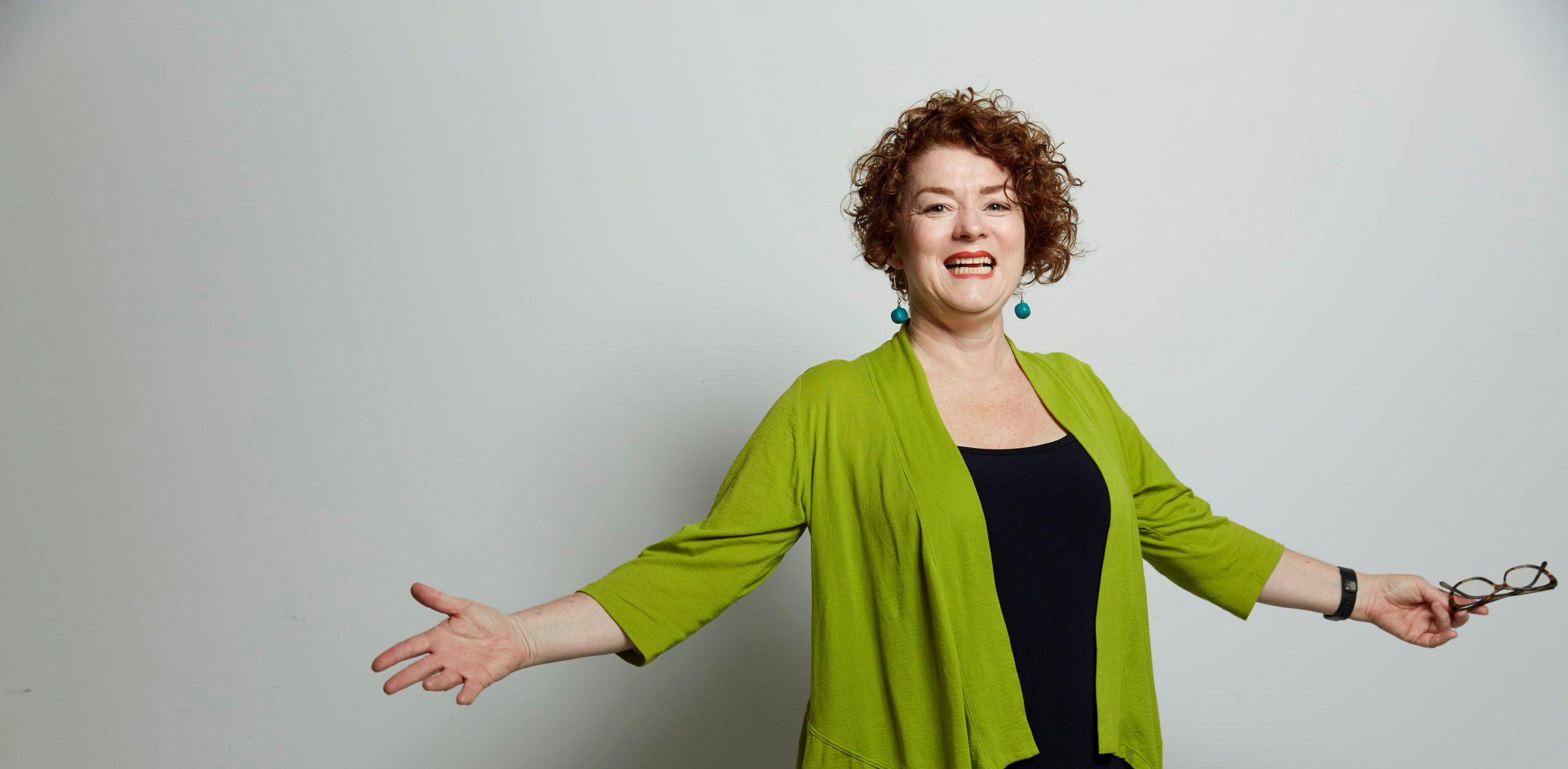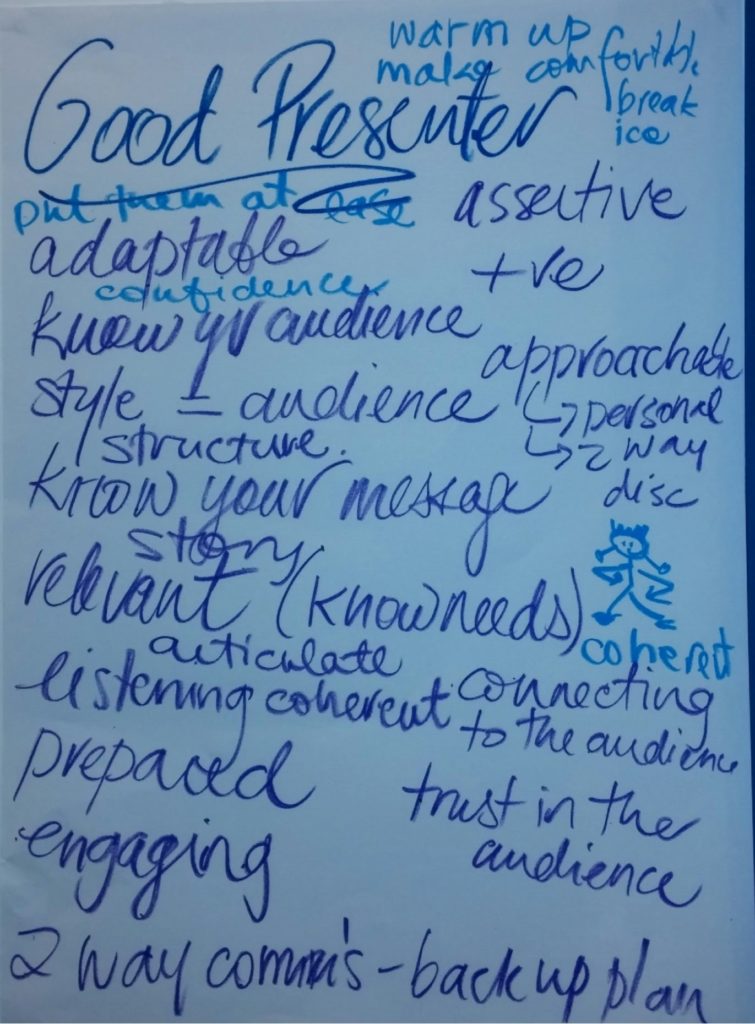
David Scott has worked in Banking, Telecommunications and in the Public Sector. Right now his agile teams are doing some very interesting work with traffic data. The team’s stated aim is to make things better for us, the end user of NSW roads.
David shares insights on how agile is building a happy, collaborative team, his leadership hacks and what he looks for in recruits. Some of this will be surprising, some of it is just good sense.
Here is his linked in profile.
Here David Scott talks about:
- the challenges of creating enterprise capability
- why his teams are loving agile ways of working
- his path to analytics through the business (Microsoft Access, his “gateway drug” to analytics)
- how he focuses on “big ticket items” that make analytics easier for people on the floor
- the importance of not getting bogged down in execution :
am I the right person to be solving this problem?
is the action going to make a difference?
is this a big rock?
David’s teams
- why he looks for humility and empathy in recruits, and how “I just want to be left alone” style people aren’t on his must have list
- David’s leadership hacks: the “call me in the car” policy, Management by Walking around (MBWA), daily standups
- how leading teams of more than 50 is a different kind of problem solving “when you’re leading larger teams you can’t be the one who has all the answers”
- why the source of his problems is usually that he hasn’t written things down (so he writes things down!)
- how coaching helped him understand his own patterns
- getting the leader / servant balance right
- the importance of creating trust and psychological safety in a team
Lessons Learned
- Just because you succeed in one role with a certain approach doesn’t means you’ll succeed in the next one with the same approach.
- It’s important to realise that explaining takes a lot of patience: we’re speaking a different language, and we’re the newcomers, so we have to make the effort.
- There are many challenges in democratising data in a federated organisation.
- Most importantly we need to take the emotion out of the problem and focus on the benefits.
- prioritising work based on what will make a step change for the customer on the roads (the end user).
- we need to recognise that not everyone is playing the same game (yet).
- don’t get bogged down in a philosophical discussion over whether something is of value, give them what they want and then we’ll learn something.
- no matter how much you think you know, you don’t know what to expect; if you can’t give clear measurable reasons about why you can’t do something then just do it
Give stakeholders a bit of control
- the importance of giving stakeholders a bit of control; if something is their highest priority it may not be yours; sometimes we support them in failing and we fail together
- it’s important to put yourself in the shoes of the person across from you
- early in my career i was really ineffective and gave people half of what they wanted: the best thing i ever did was step into a marketing role for a few months (I hated it)
- we’re doing an innovative, exciting new thing, and everyone’s got an opinion on how it should be done faster, better
- be prepared to put yourself in the shoes of someone else, it’s a great industry, a really rewarding role, and you’ve got to give yourself time
- balancing getting outcomes from the meeting and getting things to where they need to go
- sometimes you just need to call it when a meeting goes awry
References
- If you know nothing about agile, start with how to form an agile team
- Transactional analysis: you tube videos to which David Scott refers. The book is Games People Play
- It’s Dopamine, not endorphin hits you get when you tick off a to do list. See here.
- LSI is life styles inventory, not leadership styles inventory
- Management 3.0: Management 1.0 was command and control, Management 2.0 was doing the right thing in a top-down hierarchy, Management 3.0 is where everyone contributes to the success of the organisation
- David Scott’s favourite charity is the Black Dog Institute.
David Scott Transcript
David Scott is today’s guest.
If you want to make a difference with the data that you are playing with, then listening to David Scott will be interesting because he is building capability to make traffic on our roads in New South Wales better. Listen in, you’ll find some interesting things.
David, tell me about yourself. What are you doing in analytics right now?
David Scott: Right now, I’m Director of Network and Asset intelligence within Roads and Maritime Services, working for the New South Wales State Government. My role is leading group of analysts who effectively analyse road performance and deliver recommendations to help improve customer experience on state roads.
Cindy Tonkin: Essentially making traffic better?
David Scott: That’s the idea. We analyze traffic patterns; perform analytics and we do a lot of traffic modeling. From there we deliver recommendations on planning decisions to improve the experience that people have on roads.

Creating enterprise capability
Cindy Tonkin: You are building a new capability here, right? This is not something that’s been done before.
David Scott: It’s been done as a pilot. Part of my role is creating enterprise capability. Introducing scale, having the right number of people to meet business demand, building better systems, introducing better processes.
Cindy Tonkin: You introduced Agile recently.
David Scott: Yes. About nine months we’ve been running Agile, which is definitely a really interesting approach in government. I can say without exception, people are really excited about Agile within government and they see a lot of benefits.
Cindy Tonkin: What are the benefits that you see, or that they tell you?
David Scott: Collaboration definitely improves. In a traditional organisational model you tend to get a really siloed environment where people will get stuck doing the same thing day, day out. Agile within Roads and Maritime has empowered people to be able to better share their work across the number of people. So not all the pressure is on one individual to deliver value. It’s driven a lot of collaboration, so people are sharing a lot more.

A platform for sharing
Cindy Tonkin: That’s a nice nurturing environment to be in. Especially when all these people have their own expertise. If you don’t have a platform for sharing that, it makes it harder to leverage that.
David Scott: That is the most exciting part. There’s a number of people here who have been here for 15, 20 years and never really had support from their colleagues to be able to manage the highs and lows of any job. They’ve definitely given me feedback and highlighted that they feel like they’ve got a new lease on life. They are learning new things; they feel like they have great support. I think it’s good and it’s really rewarding to see.
Cindy Tonkin Yes. As a leader, it is nice to know that you’re having an effect that you can not only measure but see. Where did you grow up, David?
David Scott: I grew up in the US in Minnesota. Nearly all my high schooling was in Minnesota. Until Year 12. I came back to Australia did a little bit of schooling here and then decided it wasn’t for me. I did a number of jobs working in retail, went into call centers, workforce planning and then analytics. Pretty much that’s where I stayed.
Cindy Tonkin: You’ve come through the business to analytics, which makes you probably a little bit more context-sensitive than some analysts may be who have come straight through by just doing numbers. You’ve come through the business to know what the business needs. Is that true for you?

The path to analytics
David Scott: To a certain extent. I was really fortunate to work in a call center with a strong leader that was focused on operational efficiency. He was really good at Microsoft Access and it was definitely a good start. From there I ended up going into ING Direct and I think that was really the foundation knowledge for me. I started to learn things like SQL, all the BI tools, SAS, modeling, that sort of stuff.
Cindy Tonkin: What are your productivity hacks? How do you make your day work smarter, faster, nicer?
David Scott: We’ve already spoken about Agile. I really love it because it can create a shared language for the way I liked to work before I knew Agile was a thing. As a leader you go through a bit of a journey. My focus is definitely shifted away from being the technical expert to really focusing on actions I can take to improve the daily lives of my team.
Cindy Tonkin: Which is part of the natural progression for a leader, right?
David Scott: Well I think so. My focus here is on trying to work through what are the big-ticket items and problems that we need to address for the organization to make analytics easier for people on the floor. In terms of productivity, I really focus on making sure I’m not getting bogged down in execution.
“Am I the right person to be solving this problem?”
“Will this make a difference to the people on the team or the organisation?”.
Cindy Tonkin: How do you check yourself?
David Scott: With everything that comes to me the first thing I ask myself is “Am I the right person to be solving this problem?”
The second thing is, “Is the action that I’m going to take make a difference to the people on the team or the organisation?”.
It’s really about trying to focus all my efforts on the big rocks and the things that are going to make a difference.
Cindy Tonkin: You may be recruiting data scientists right now and you have recruited in the past. What are some of the things you look for in the people that come to your team?

Finding the right people
David Scott: It’s important to have some humility. I like to find people who are not caught up in the hype of analytics and data science. The role is about delivering business value or improving customer outcomes or improving customer experience. I’m involved in every single recruitment decision that happens within my group. I’m involved in all those conversations at the final stage.
What I’m looking for is people who can come in and prioritise supporting their colleagues first and foremost. But also have the humility and the empathy to be able to work with people who might not get the tech or understand a lot of the concepts around stats.
Cindy Tonkin: How do you test for that in an interview environment? That’s the tricky thing. Some people give a great interview but aren’t great necessarily great outside of that.
David Scott: I have no idea. Sometimes I get it wrong. There is no hard and fast. Sometimes you pick up on things, not everyone gets along. If people aren’t comfortable prioritising supporting their colleagues, and some people aren’t, I’ve had people say to me I perform best by just being left alone. It makes it a pretty easy conversation.
Cindy Tonkin: Because agile, the way you’re doing it, is not going to work for them.
David Scott: That’s right, and it’s not just agile. The way that I like to build the team is a team that can support each other.

Daily routines
Cindy Tonkin: Yes. What about your daily routines? How do you run your day? Take me from the beginning of the day to the end of the day typically. You don’t have to tell us anything private. What time do you wake up, how do you get to work?
David Scott: I’ve got quite a long commute to work so generally I’m in the car for at least an hour and a half if not an hour and three quarters. I’ll spend that time catching up on phone calls and things like that. I will speak to people either on my way to work or on the way home.
Cindy Tonkin: Work people or is it networking? What is it?
David Scott: It’s a bit of everything.
Cindy Tonkin: Are your team working from seven in the morning when you first call them?
David Scott: No, but they know they can call me at seven in the morning. If somebody needs help, then they always know they can get me before nine o’clock in the car.
Cindy Tonkin: In the RMS environment some people will be starting at six thirty.
David Scott: Yes, it’s very flexible. We have people starting at all different times. More often than not from eight till nine I’m on the phone with people at work, just working through various challenges as they happen. Then I’ll arrive my routine is to try to walk the floor and say hello to everyone. I know it sounds like a really small thing,
Cindy Tonkin: No. Management by walking around is one of the best tools.
walk the floor and say hello to everyone
David Scott: Yes. I think it’s good just say hello to everybody. Kickstart the day. My leadership team has a daily stand up at nine fifteen. It is a great opportunity for us to talk about the previous day’s challenges and work through any issues. We plan for the day, what we’re going to do and address any of the big issues that we might have at any one point.

The value in coaching
The benefit of having the daily stand up is that people are constantly sharing where they’re at and what the issues are. From there, some days I’m in meetings for the rest of the day. Not my favourite day, but a lot of the other days is a bit of mix of meetings and just working with people. My days of executing and being the hands-on problem solver are not all over, but I spend a lot less time working in isolation and a lot more time trying to coach people.
Cindy Tonkin: Do you miss having that problem-solving thing, or is a different kind of problem solving?
David Scott: It’s a different kind of problem-solving. It’s harder.
My biggest challenge right now is ensuring that I’m not just giving people solutions, but I’m working through and really challenging people to think through the various options and then weigh up the pros and cons of those options and make a really viable recommendation.
not just giving people solutions, working through and really challenging people to think through the various options and then weigh up the pros and cons of those options and make a really viable recommendation
Cindy Tonkin: It sometimes hard because it requires the leader to parse how they even make a decision in the first place to get to the answer. Sometimes we don’t know how we do that in the first place. It’s a constant, how do I do that? It’s hard.
David Scott: It’s hard. I don’t think I get it right all the time. Actually, lots of people can tell you that I don’t. When you are leading large teams, you can’t afford to be the one that’s constantly got all the answers.
Cindy Tonkin: How many people in your team or greater team?
When you are leading large teams, you can’t afford to be the one that’s constantly got all the answers
David Scott: We’ve got about 50 permanents and quite a few contractors here helping us. Given that we’re making such significant changes and trying to drive the big transition from quite a fragmented business model to one that’s really focused on delivering good quality enterprise, great analytics. We’ve got a lot of support here with them. The count might be closer to 60 or 70.
Cindy Tonkin: But too many for you to actually know exactly what everybody is doing at any one time. You cannot know all 60 people’s activities.

Processes and priorities
David Scott: No. We’ve got a standard process. Every single request will go through a standard process. So, we’ve got a very good idea of what the backlog of work is. Each individual scrum manages their own priorities with their business stakeholders. So, you know, we do have a great idea of what’s happening.
Cindy Tonkin: And you can see because it’s on boards, on post its.
David Scott: Yes, and we do a show and tell every two weeks. We have a regular check-in, give the team a chance to present the work they’re doing and celebrate the success the team is achieving. It’s good.
Cindy Tonkin: I always ask people this. How many emails in your inbox? Are you an inbox zero and kind of person? Are you an “I won’t open it, but I know what’s in it” person?
David Scott: I had 29 when I came to this meeting.
Cindy Tonkin: That’s good. That’s fabulous compared to between 25 and 70,000 I’ve heard people tell me so far. That’s pretty impressive.
David Scott: I try to keep it at zero. If I’m out of the office for a day, it goes probably up in the hundreds. I would get at least a hundred a day. At the end of the day, generally I’ll crush through a lot. I like to have very balanced routine. I’m arriving here eight thirty, nine o’clock. I’m generally out between five thirty and six. I’ll use anywhere from four until five thirty to do emails.

Getting things done
Cindy Tonkin: It’s the at the end of the day, anything that hasn’t been cleared out of the inbox, you just didn’t get to it or it wasn’t important.
David Scott: I carry stuff over. I’ve got 27 and I can absolutely say that at least 15 to 20 of them are things that I need to do. I’ll carry that over and for a couple of days and then have a big block of time where I’ll focus on,
Cindy Tonkin: Do you write a to do list as well?
Davis Scott: Yes. A to do list.
Cindy Tonkin: Electronic? Paper?
David Scott: Yeah, definitely paper.
Cindy Tonkin: Do you like the ticking off experience?
David Scott: I’ll just scribble it out.
Cindy Tonkin: Scribble it out. And what do you do with the book after?
David Scott: I have just have one notebook. Its right here actually. I just carry it everywhere I go and it’s great.
Cindy Tonkin: Do you tear out the pages you don’t need anymore?
Davis Scott: No, no, I keep them so I can look back and think and see all the things I finished.
Cindy Tonkin: There has to be some endorphin hits in that. Looking back and going, a year ago I was doing this and now I’m not doing that. Or, I’m still doing it, but I’m committed to doing it.

Write it down!
David Scott: Sometimes I go off the rails with my organisational skills and I don’t write things down. Like I’ll go for a few days or even sometimes it’s a week. Then I look and I realise I haven’t written anything down. That’s generally the source of my problems, just not a lot of things written down.
Cindy Tonkin: Yes. Just write it down. Nice recipe for getting rid of overwhelm. What about professional development? What do you do? What do you listen to? What do you read? How do you do network? What do you do to keep up to date?
David Scott: I get a lot of feedback from the team.
Cindy Tonkin: At this stage in your team development that’s probably exactly where you want to be focusing.
David Scott: Yes. I have a meeting with every person within my group at least twice a year. They have a half hour. Half of the meeting is about development planning, making sure that every person in my group has got a development plan and that we review how we’re tracking towards it. The second half of the discussion is how we’re performing as a group and feedback for me in terms of things that I should be doing differently, things they really like.
That’s a large part of my focus right now. My priority is building that ecosystem, driving innovation, and giving people permission to achieve great outcomes. I’ve had a lot of coaching recently.
My priority is building that ecosystem, driving innovation, and giving people permission to achieve great outcomes.

Benefits of coaching
Cindy Tonkin: What’s the benefit of coaching for you?
David Scott: It helped me understand how I interacted with people and some of the habits that I had formed over a really long time. It’s helped me better understand my interaction with people and how I work through different scenarios.
Cindy Tonkin: Basically, reflecting on your own patterns and how that helps
David Scott: Yes, there’s a real simple concept called transactional analysis. It really helps to understand the roles that you take in communication.
Cindy Tonkin: Is that the parent child?
David Scott: Yes. It’s good – right?
Cindy Tonkin: Yes. It’s like, oh, I didn’t realize I was doing that. Yeah. I’m doing myself again. It is a book [The Games People Play by Eric Berne]
David Scott: I don’t know what the book was. I just know that the YouTube videos very good. It’s a three-part series, I can’t remember his name, but very good. Very good. My leadership team are doing development together to try to build the common language between us in terms of how we identify and respond to issues, but also communicate to resolve problems.
Cindy Tonkin: What kind of topics do you do?
David Scott: Last week we did part one of Life styles inventory. In the next couple of weeks we’re doing Management 3.0. We are going to an external course. It was recommended by somebody in my leadership team. The challenge with running an Agile environment is that there’s a transfer of power. As a leader it makes you a little bit confused. What do I do now? What’s my role? The benefit from my perspective is for us as a team to talk about how we can stay relevant and enable the team to get the right balance with leadership and holding people accountable for results.
The benefit from my perspective is for us as a team to talk about how we can stay relevant and enable the team to get the right balance with leadership and holding people accountable for results.

Working faster and smarter
Cindy Tonkin: You basically created this menu of development options. So how frequently do you do that kind of update or expansion of your ideas? One last week, you’ve got another one in a couple of weeks.
David Scott: It’s a new leadership team. We’re probably focusing a little bit more than I normally would. I think that’ll be it for this year. The priority right now is operating in quite a traditional environment. State government. But I think it’s working well. The organisation’s responding very positively to the changes we’re making. I think people are fascinated. I don’t know that they know exactly how it works, but they’re definitely very interested to find out, which is a good thing.
Cindy Tonkin: You are essentially pioneering?
David Scott: Yes, I think so. Yeah. A little bit. With known techniques.
Cindy Tonkin: In terms of how to work smarter and faster, we’ve talked a little bit about people models like LSI, transactional analysis. Are there any other models like Myers-Briggs and Disc? Any of those things that you use to kind of understand how people function in your career?
David Scott: I don’t really know. I like people as people. Just recognising the strength of diversity is really important. I personally focus a lot less on a Myers-Briggs versus a Disc. I don’t see the same level of value as what you could get out of just listening to people and setting up in an environment where people feel safe to speak up and take control of their own destiny.
Cindy Tonkin: Psychological safety is a big word right now in management literature in terms of what I’m reading. How do you build that psychological safety and trust?

Building psychological safety
David Scott: I tend to just be myself. What you see is what you get. I’m transparent with people in terms of my objectives, of the intention here at RMS or even in my previous roles. It’s about setting a really clear strategy on how you’re going, where are you going to go, and then having some values in terms of how you’re going to get there. I don’t ever assume that people trust me personally.
The value of having the bi-annual sessions with the team is to build those relationships. I think it’s important to know everyone in the team.
Cindy Tonkin: Do you do bi-annuals with all sixty people?
David Scott: Yeah, pretty much. I prioritise the permanent people at this stage. I will start meeting with contractors because I think they definitely bring a different perspective. Having been with a number of different clients, it’s really useful to get their insights as to how we’re working, how effective we are, things we can do differently.
Cindy Tonkin: So talk to me, are there any lessons in your career that you’ve learned? Like I will never do that again because it’s taught me this or I’ll always do that because they taught me something.
Lessons learned
David Scott: Yeah. I think just because you succeed in one organisation with a certain approach doesn’t mean you’ll succeed in the next one. Sometimes with my last role I definitely didn’t achieve what I’d hope to achieve within that role. But sometimes I think the stars are just not aligned and the cards are stacked against you and just cutting yourself a bit of slack to realise that you don’t always have all the answers. I’m constantly learning. I make mistakes all the time. It’s part of the fun – right?
Cindy Tonkin: Do you learn from the mistakes, or just keep on making the same mistakes over?
David Scott: I say to the team, we’re all on a journey here, just because I might be running the function doesn’t necessarily mean that I’m not learning as well. I genuinely appreciate all the feedback that the team gives me, even if it’s not welcome, at least its giving me something.
Cindy Tonkin: In this organisation where things are changing rapidly, and there is a change management in terms of creating teams, there’s also change management in terms of the people who interface with that data. How do you explain these complex concepts and this change? What do you do to explain that kind of stuff to stakeholders in your world?
David Scott: That’s a good question. The first thing is it takes a lot of patience. The fact is we’re speaking a different language. We need to recognise that we’re the newcomers. Which means we need to work at delivering the message. I’ve had to accept that I can’t take the organisation and jump.
Cindy Tonkin: They have to be organisationally ready.

Complex explanations
David Scott: Yes. It is a bit of a journey. It starts with one step and then another and another. At this stage our main focus is on democratising data. The big challenge within Roads and Maritime previously has been it’s very federated. There’s definitely pockets of data spread all over the place and it’s really inconsistent as to who can get access to what. A big priority right now is just giving people access to the data, and giving them all the support we possibly can to clear hurdles in their way.
Cindy Tonkin: I imagine there are` two sides to that. There are the people who have the data right now and didn’t want to give it to you, don’t want to continue to give it. Then the people who are like, I get to see this stuff that is actually very useful for what I do.
Have you got different approaches? Do you leverage the people who’ve been here for a while and have the relationships? Do you make new relationships?
David Scott: I think it’s a bit of everything. There are definitely people within my group now who’ve got a lot of experience within Roads of Maritime. They are gold. Their insight into the past and how to overcome certain challenges has been really helpful. A lot of the time it’s just taking the emotion out of the problem and focusing on the benefits to the business.
A lot of the time it’s just taking the emotion out of the problem and focusing on the benefits to the business.
Cindy Tonkin: How do you take the emotion out of the problem? What are your techniques for doing that?

Making change
David Scott: Looking at the work, the question that we ask ourselves all the time is, which of these things are going to deliver a step change improvement for people on the roads? That very quickly makes it quite clear what’s important versus what’s not.
Cindy Tonkin: That’s an interesting question because it’s not what’s going to make it easy for my stakeholders in terms of the organization, but what’s going to make it easy for the customer on the road? That’s a very different question. I imagine you had some struggle even establishing that question.
David Scott: It is a big change. I’ve worked in a lot of customer focused organisations and take for granted what it means to be in a customer-focused organisation. Roads and Maritime has this massive ambition to be customer-focused. So, you have to acknowledge it: we’re going to start by being customer-focused ourselves. But we need to respect the fact that not everyone is playing the same game and that those people eventually will come on the journey.
Our focus is to make it as easy as it can be for them. Highlighting the impact that it has on an end-user of the roads is really important. The other thing is not getting bogged down in a philosophical discussion as to whether or not something is going to add value. Sometimes the fastest way to resolve it is to just give people what they want. Help them see whether it was really valuable. Then next time, maybe they’ll trust you a little bit more.

Supporting client priorities
Cindy Tonkin: Give them what they want even though you think it may have limited value.
David Scott: But sometimes we think that there’s limited value and it turns out to be the most valuable thing ever.
Cindy Tonkin: So no one can see the future.
David Scott: I learned that lesson a long time ago. I remember working for ING and we were running these bonus campaigns to attract more deposits. As a young analyst I was hugely cynical. It ended up being the best thing that they had ever done and attracted billions of dollars. No matter how much you think you know, the fact is that somebody knows better. You just don’t know what to expect. That’s the excitement.
So, really focus on the numbers. If you can’t give clear measurable reasons as to why you shouldn’t do something, then you’re best off supporting and learning from that. We might find really good things that we just didn’t expect. The other thing we do, is work with our stakeholders and give them a bit of control. They have the option to, if they want to, prioritise a certain piece of work and we’ll support them in doing that.
If you can’t give clear measurable reasons as to why you shouldn’t do something, then you’re best off supporting and learning from that.
Cindy Tonkin: Even if it doesn’t necessarily align with the best, highest priority?
David Scott: If it is their priority, we’ve got to support them. It’s all one team here. We have to support our colleagues. That might mean that we support them in failing and that’s okay because as a group we learned from that.

Advice for the young analyst
Cindy Tonkin: So it’s kind of, just be human, pay attention to what they want, help them get what they want. Is there any advice you’d give to a young analyst looking for a job or doing education right now in terms of what they should focus on, think about?
David Scott: The most important thing is to put yourself in the shoes of the person across from you. Being an analyst is really hard. You have to work with people, understand their needs, translate that into a technical solution, go get the solution, come back and hopefully the hit the mark.
More often than not, especially in my early in my career, I was ineffective and gave people half of what they were looking for. The best experience I could have gotten was actually stepping out of being an analyst and doing a marketing role for a few months. And I did do that for six months.
Cindy Tonkin: What did that teach you?
The most important thing is to put yourself in the shoes of the person across from you. I walked in the shoes of my stakeholders and it was awful.
David Scott: I walked in the shoes of my stakeholders and it was awful. You ask for a square peg and you get a round something or other.
Cindy Tonkin: Its that swing. What the client asks for, what the analyst design, what we actually gave them.
David Scott: That’s right. Each one is different. Definitely. Yeah. So putting yourself in the shoes of your colleagues is really important. Even now, were working through it at the moment. Setting up the completely new environment in the cloud. It’s really innovative, it’s exciting, it’s new. I think most organizations are still taking quite a traditional approach. But you know, everyone’s got an opinion about how it should happen faster, smoother.

Walk in the shoes of the customer
What I’m trying to do, is actually give the problem back to those people who think it should be done differently and hopefully they’ll develop a deeper appreciation. Or we might learn something new which somebody hasn’t thought about before. It’s a bit of a win-win. For anybody starting in analytics, the first thing is be prepared to put yourself in the shoes of somebody else.
The second thing is, it’s a great industry and a really rewarding role, but you’ve got to give yourself time. I’ve got people who I’ve worked with for years and years and you see them go through the journey. What I appreciate is that generally people focus on the excitement of the job and the rewards seem to just come with that anyway. So that’s good.
Cindy Tonkin: Tell me about managing meetings. If you have a meeting going sour, how do you put it back on track? Or do you not, what do you do?
David Scott: I call it.
Cindy Tonkin: So you actually say this meeting has gone awry?
David Scott: Yes. I just say this isn’t working and we’re not getting to where we need to go. That’s the challenge, right? As a leader it’s very difficult. You need to balance that need to give the team enough freedom to take the conversation where it needs to go and balance that with the need to keep things on track and get outcomes. I probably call it more than I should. That’s just my disproportionate focus. I like to get outcomes. If I feel like we’re getting off track I’m keen to just focus on what’s the problem we’re trying to solve.
Cindy Tonkin: And people usually find that refreshing? Do they get aggressive?
David Scott: People don’t get aggressive. Generally if people have a problem with it they tell me. And that’s fine, I get back in my box. I think there’s a healthy tension there to a certain extent. Sometimes you just need to call it. There is either a communication issue, we’re going too far down into the weeds, we’ve lost sight of what’s important. I don’t like to say things drag on.

Favourite Charity
Cindy Tonkin: So my final question for you, what’s your favorite charity?
David Scott: I think the Black Dog Institute is my favorite one.
Depression is a really big deal to a lot of people. I feel very fortunate that I haven’t personally suffered from those sorts of issues, but I know a lot of people who have. I think it’s debilitating. I think it’s very difficult. There are so many people out there where life gets on top of you, and you don’t see a way out. Any charities that are focusing on the important issue of depression, it’s really important.
Cindy Tonkin: Excellent. David Thank you so much for sharing your insights with me today. It has been wonderful
David Scott: Yes. Thank you. Thanks for your time.
This is Cindy Tonkin. I’m the Consultants Consultant and you’ve been listening to smarter data people.
This is part of what I do to understand how it is that data scientists can be more effective in the workplace, smarter, faster, and nicer. And if you have a team and you’re finding them harder to manage than they could be, if you’re constantly trying to squeeze more out of your budget and out of their time, and if you’ve got stakeholders or they’ve got stakeholders who are less than happy, sometimes maybe a lot more than some times, it can be really annoying and it can make you feel in competent. I can help you help them get to the important problems faster, target the waste time, and save you time and money, and ultimately delight stakeholders so that you can feel competent again. It’s such a good feeling. Talk to me.
Other episodes you might like:





